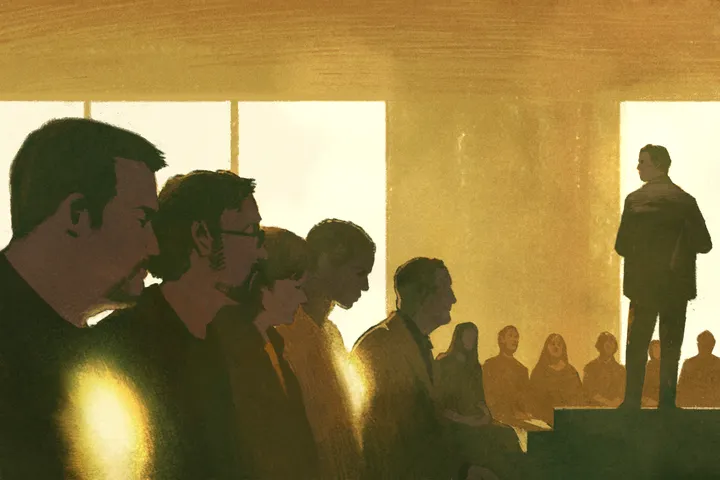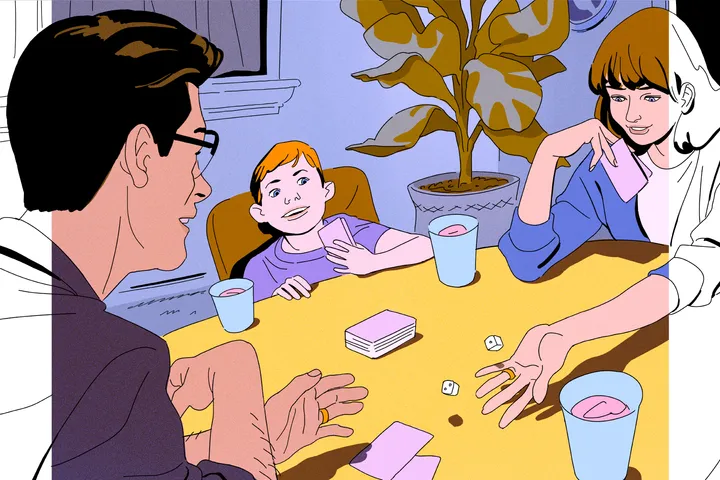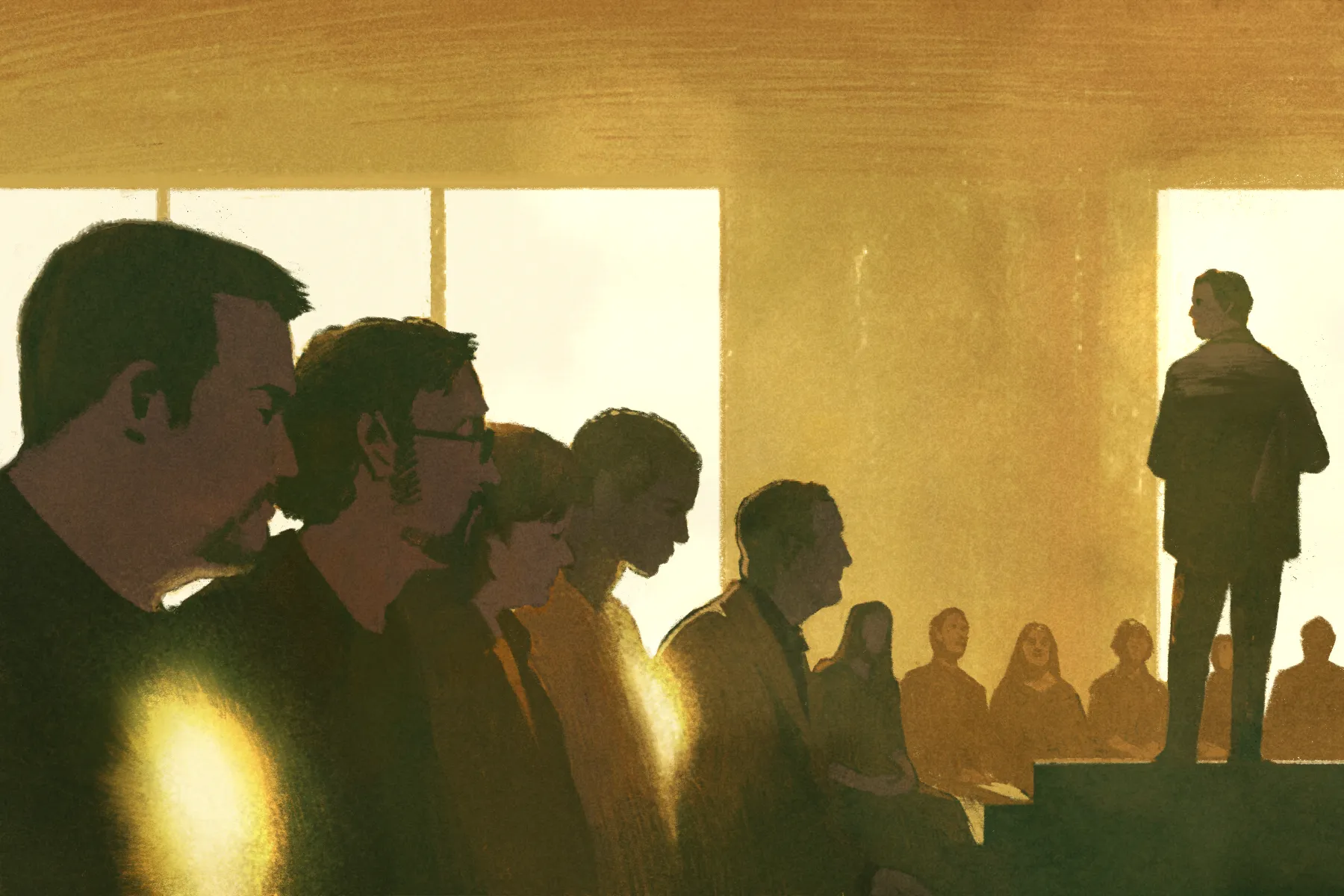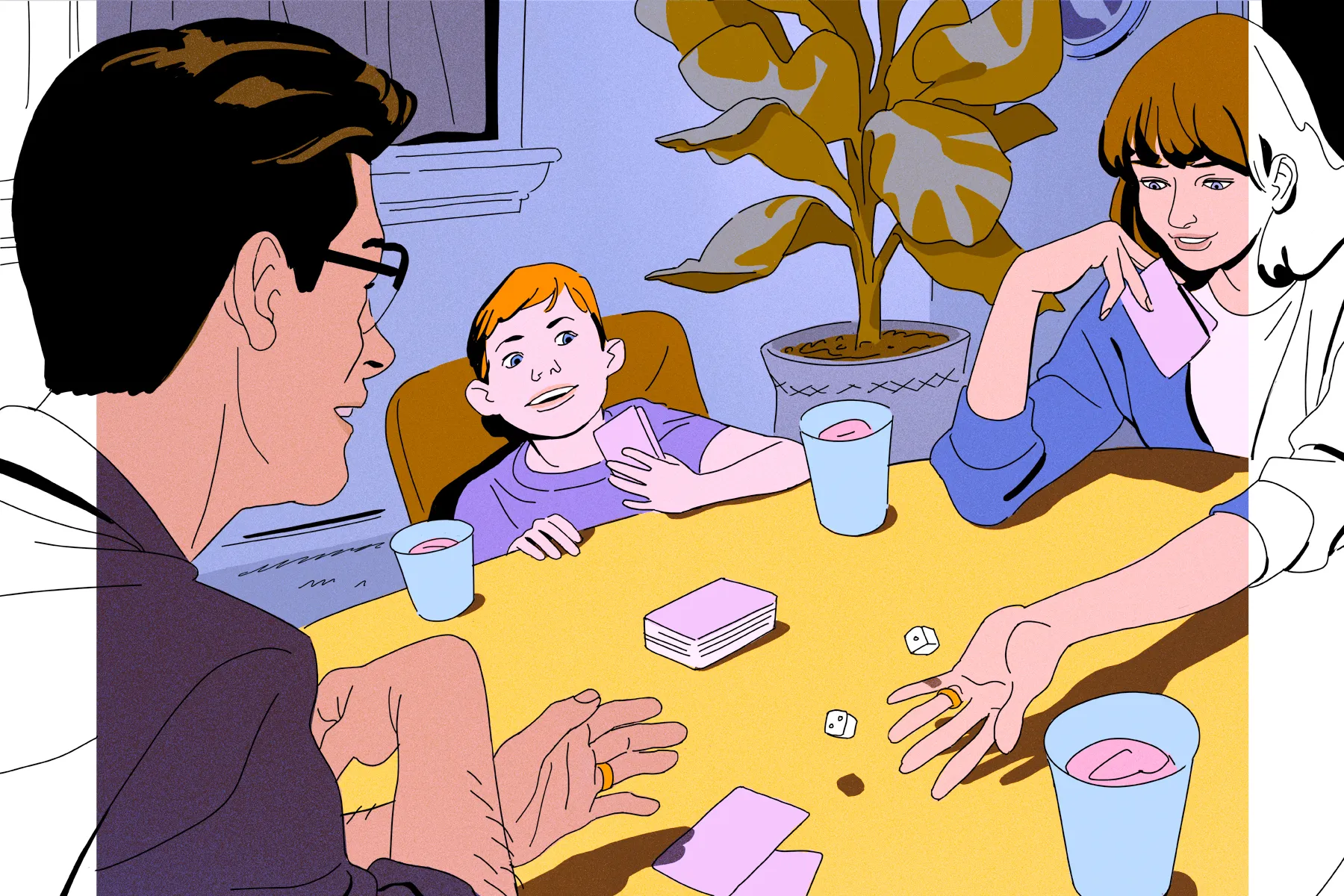When I was a young child, I often looked to my older brother for cues about how to navigate life. Gerry was my first friend, and the first person I followed. I learned to read at a young age because I was intrigued by the reading he already was doing. I also understood how to relate to my parents by watching Gerry interact with them. While my mom and dad often gave me wonderful wisdom and direction, I never took their advice as eagerly as when my brother said the same thing. I listened to him because we were growing up in similar circumstances. He understood me.

At the same time, my relationship with my parents came with a built-in hierarchy. I treated them respectfully (or not) based on their position of authority over me. It was a pretty one-sided relationship for at least the first 18 years: They worked out my conflicts. They took care of my needs. They told me what to do and how to act.
My relationship with my brother, on the other hand, operated differently. He was the first person I fought with, the first person with whom I had to work out conflict. Our relationship had to be reciprocal. Sure, when I was very young, our mother probably forced him to play with me, to let me tag along, to be nice to me. But except through coercion, he wouldn’t humor me or tolerate my flaws the way my parents would. He didn’t have to.
On the other hand, Jesus teaches us what it’s like to be in a reciprocal relationship with God, to interact, to approach, to love without coercion. As the author of Hebrews writes, Jesus isn’t a “high priest who cannot sympathize with our weaknesses, but One who has been tempted in all things as we are, yet without sin” (Heb. 4:15). Jesus understands the constraints of flesh, time, and even sin and its effects on the world. Yet He models how to pray, worship, serve, and love God as a brother—a co-heir. He even shows us how to suffer for the kingdom, and as Paul writes, to “also share in his glory” (Rom. 8:17 NIV).
Except through coercion, my brother wouldn’t humor me or tolerate my flaws the way my parents would. He didn’t have to.
But having Jesus as our brother teaches us more than just how to relate to God from our position of weakness. It also teaches us how to love others in non-hierarchical relationships. When Jesus tells us that every time we serve “the least of them” we serve Him, it’s a call to more than just service (Matt. 25:40). Here, Jesus calls us to be in relationship with people as equals. Jesus, our incarnated brother, elevates humanity and offers His stamp of approval on every child and senior, every ragamuffin and real estate mogul, every homeless man with his hand out and every smartly dressed woman in three-inch pumps. Humanity itself is a kinship of equals, and by hiding out among the least of these, Jesus insists that this is the truth.
Of course, Jesus Himself had earthly brothers, or at least half-brothers. Watching my stepsons grow up and navigate life together and separately come into their own has given me a firsthand look at the miracle of relationships, how very much is at stake in keeping or losing each other. I wonder what Jesus’s brothers thought when He said, “Who are My mother and My brothers?” when they were looking for Him (Mark 3:33). Did it cut like a knife? Was it a point of no return in their relationship?
Or was Jesus saying something different? That the important relationships in the beginning of our lives prepare us to welcome even more people along the way. With Jesus as our brother, we really are all family.
Art by Jeff Gregory





